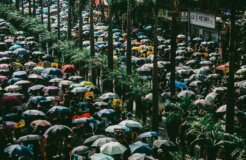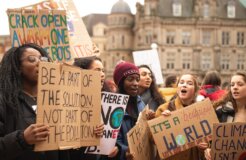The People's Republic of China is one of the world's most powerful economies and the globe's top populous nation, with 1.4 billion citizens. Major religions in the country are Buddhism, Christianity, Islam and Taoism, all making up parts of the country's 4,000-year civilisation, which in many ways, has helped build the foundations of today's world as we know it.
Today China is a major player in the neoliberal global economy and is the go-to place for much of the world's production and export. Before China's reform, it was stagnating for decades under the rigid totalitarian socialism of founder Mao Zedong. But while China enjoys much of the freedoms that come with globalisation and purchase power, President Xi Ping, who was unilaterally elected by his predecessor in 2012, rejects Western ideas of constitutional democracy and human rights as models for China, and his government moved to silence voices critical of one-party rule, especially on social media.
Chinese citizens are under strict rules when it comes to media consumption and their use of the internet, as they are restricted from using global platforms and instead use their own, such as WeChat, Alibaba, and Baidu.
China has been responsible for one of the world's worst human rights crises in the world: The arbitrary detention in camps of a million or more Uighur Muslims in China’s northwestern Xinjiang province where they are forced to abandon their traditional religion and language.





